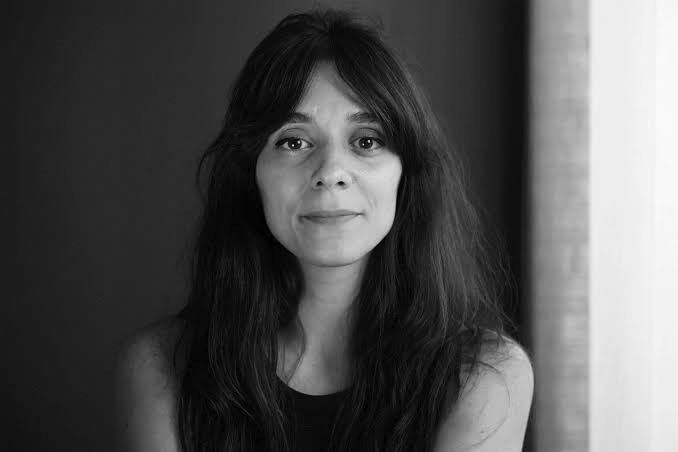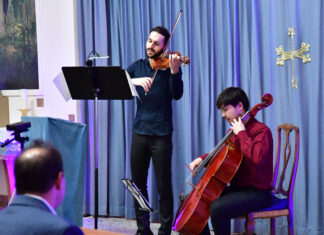Recently, Jordan withdrew its submission of “My Sweet Land,” winner of the Grand Jury Award at the First Film Feature Competition at Sheffield International Documentary Festival, from consideration for Best International Feature Film at the 97th Academy of Motion Picture Arts and Sciences Awards. A film honored at the Amman International Film Festival as Best Feature Length Arab Documentary and funded by Jordan’s Royal Film Commission was suddenly dropped as Jordan’s entry for the Academy Awards, reportedly “due to diplomatic pressures” from Azerbaijan, for its sympathetic portrayal of displaced Armenians in the decades-long conflict between the Republic of Artsakh, an enclave in Nagorno Karabakh whose highlands ethnic Armenians have inhabited for millennia, and Azerbaijan that claims the enclave as its own.
Through a simple story of growing up, director Sareen Hairabedian tackles the age-old question: Why do we engage in violence and wars when they only beget more violence? Rather than sensationalize the barbarity and the bloodshed that have been part of the lives of the natives of Artsakh for decades, however, Hairabedian foregrounds the intimacies and the quiet of the everyday lives of the inhabitants of a small village, home to the eleven-year-old protagonist Vrej, to depict the disruptions caused by perpetual wars. It is “the warmth of the family bond” that the film highlights, Hairabedian said in an interview with Documentary magazine. After being forced to flee during the 2020 Artsakh War, Vrej returns to a hometown littered with mines and gaping holes where missiles had hit the walls. Yet, he goes about playing with his toy gun imitating the sounds of the real guns the kids in the new militarized schools were learning to operate in preparation for the next war.

“My Sweet Land” opens with the breathtakingly beautiful scene of a 2008 mass wedding of seven hundred couples tying the knot, the harbinger of new families and new children that will repopulate the land. The purity of the white bridal gowns is invoked throughout by the gaggles of white geese strolling the green meadows of the “sweet land” and the flocks of white birds gliding through its skies. These images highlight the peaceful village where, while dad is fighting on the frontline, grandma is cultivating her land, harvesting her beans and cooking in the back with the chickens scratching around. “Nothing is imposed,” says Hairabedian. Everything, including the beautiful score by the world-renowned Armenian jazz pianist and composer Tigran Hamasyan, is “part of the land of the people.”
The filmmaker portrays it all with genuineness. The 11-year-old Vrej Khatchatryan, a kid from the small village of Tsaghkashen in the Martakert region of Artsakh, born to a couple who participated in the mass wedding, “plays” his part with an astonishing naturalness. When asked how she managed to achieve such authenticity, “It took years of trust and relationship building with Vrej and his family,” confided Hairabedian who travelled to Artsakh in 2018 to see “what kind of life the children born during that time were living.” “Children have hopes and dreams and deserve to live in peace — not as prisoners to inherited wars,” she notes in a director’s statement. “Their right to a place that is theirs and that is safe [is] the fundamental truth of humanity,” she affirms.
Knowing that the villagers have already been forcibly removed from their “sweet land” — the entire population of Artsakh was uprooted from its ancestral lands during the September 2023 exodus following a nine-month blockade — makes the experience of watching the documentary extremely poignant. Even as the young hero attests that “We will get our lands back,” the village, as Vrej has known it, will most likely be erased from existence.
In movies heroes often survive, but Vrej’s “Will I live to die?” does not bode a happy ending. In fact, learning of the latest atrocity, that Azerbaijan has handed over Artsakh’s iconic medieval Armenian monastery Dadivank to the “administration” of the Udi community, only reinforces the unbearable feeling of helplessness in the face of Evil. For nothing less than sheer Evil can explain the ongoing lies and the destruction of the millennia-old religious and cultural heritage of the land to justify the attempts to appropriate its Armenian cultural heritage.









